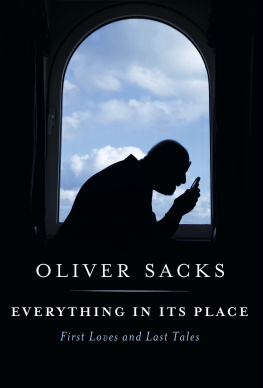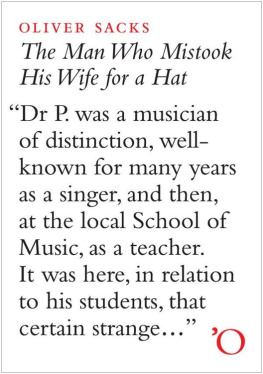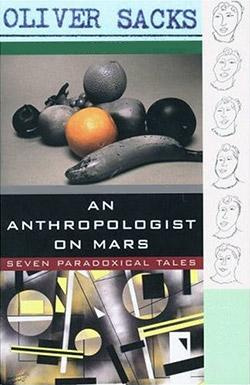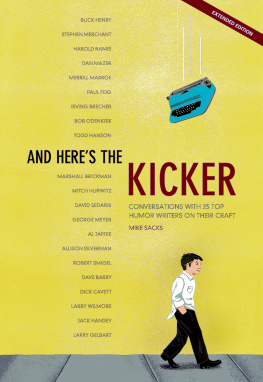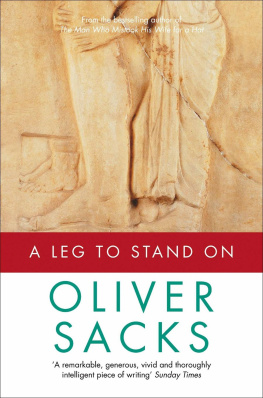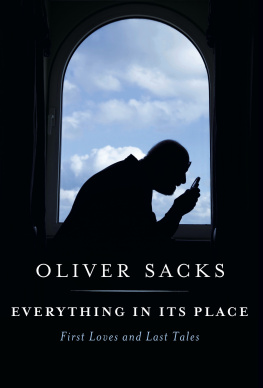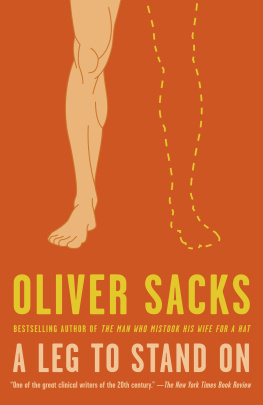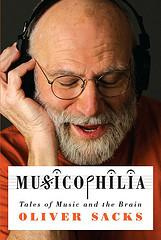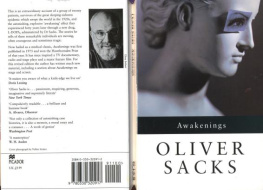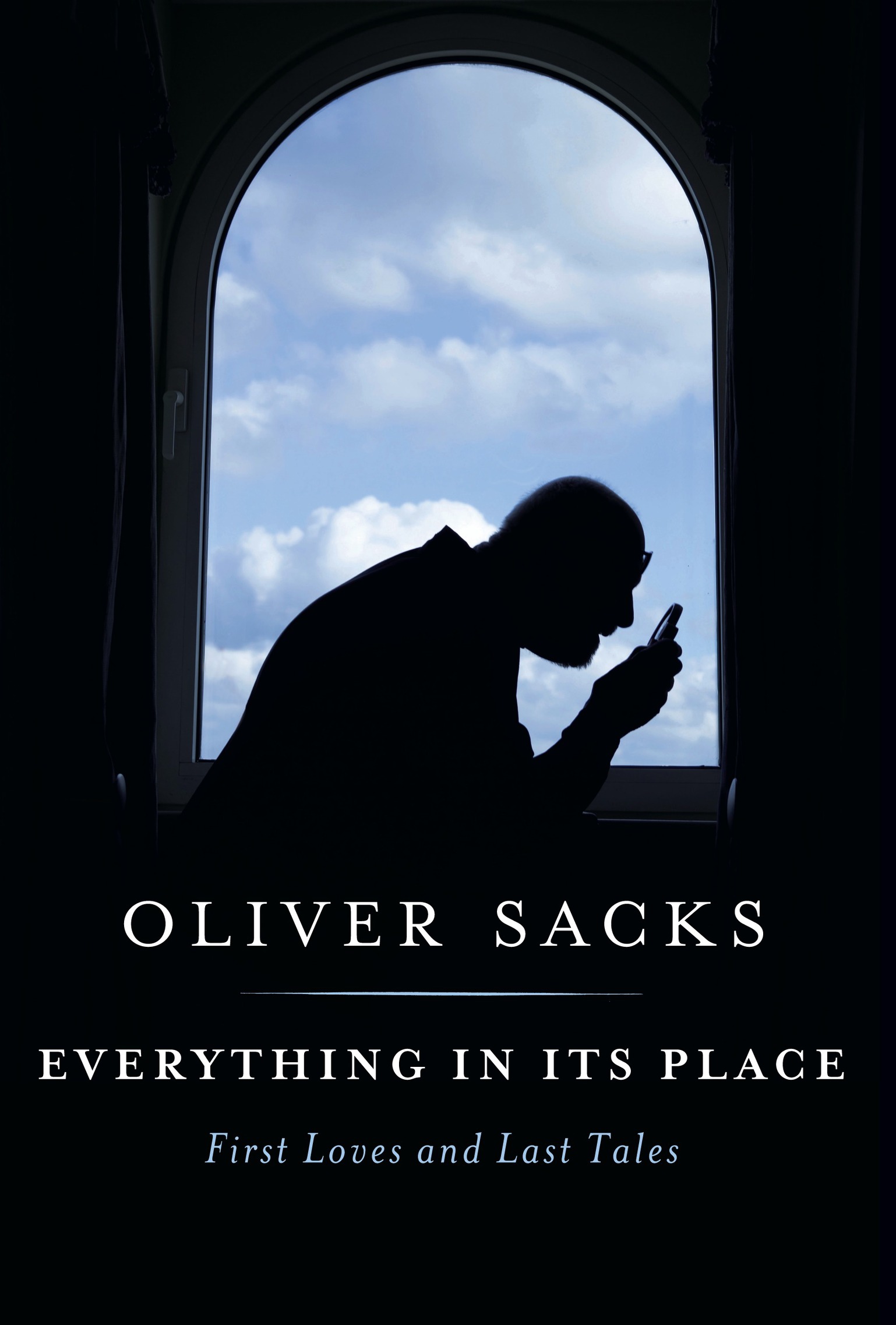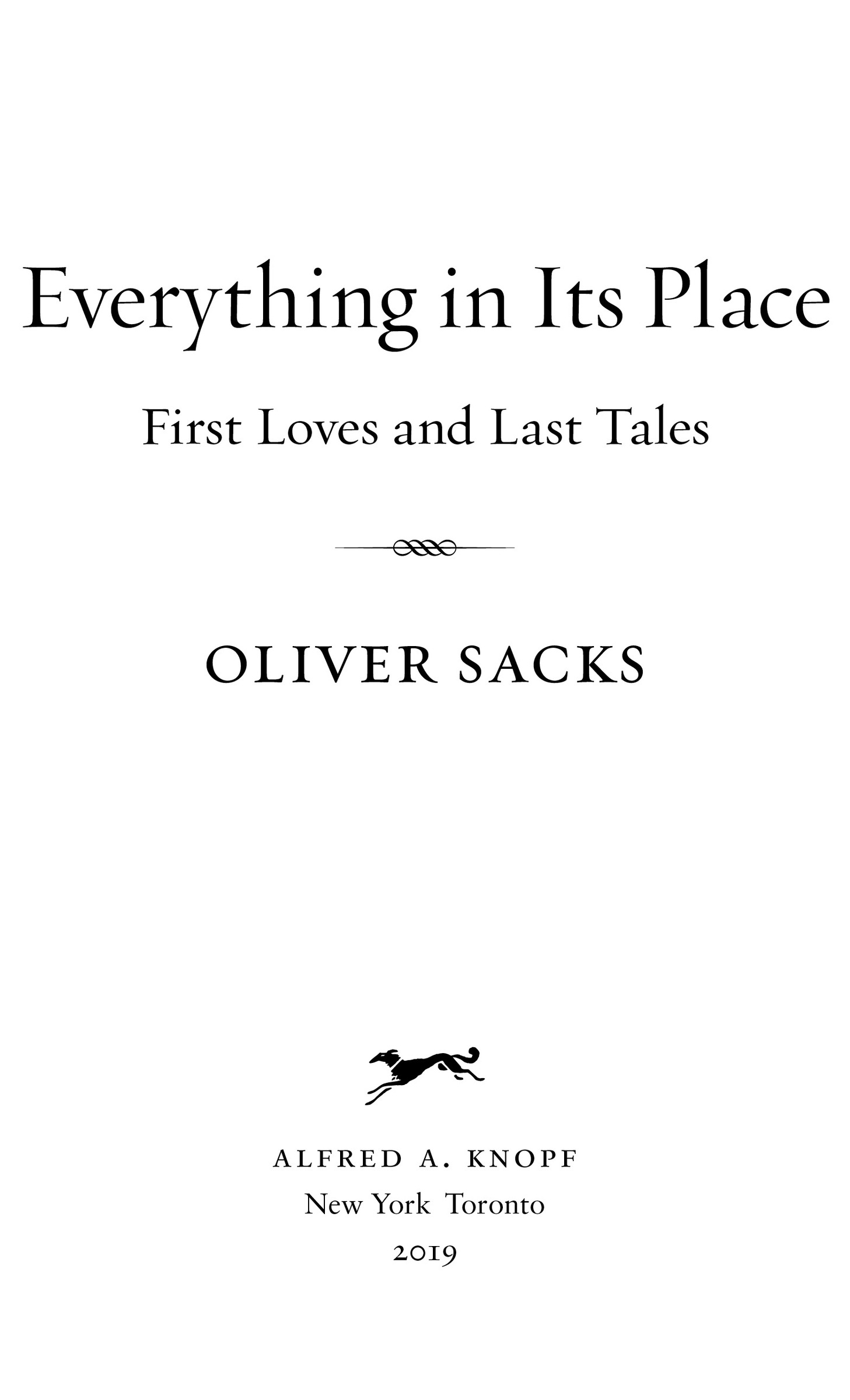ALSO BY OLIVER SACKS
Migraine
Awakenings
A Leg to Stand On
The Man Who Mistook His Wife for a Hat
Seeing Voices
An Anthropologist on Mars
The Island of the Colorblind
Uncle Tungsten
Oaxaca Journal
Musicophilia
The Minds Eye
Hallucinations
On the Move
Gratitude
The River of Consciousness
THIS IS A BORZOI BOOK PUBLISHED BY ALFRED A . KNOPF AND ALFRED A . KNOPF CANADA
Copyright 2019 by the Oliver Sacks Foundation
All rights reserved. Published in the United States by Alfred A. Knopf, a division of Penguin Random House LLC, New York, and in Canada by Alfred A. Knopf Canada, a division of Penguin Random House Canada Limited, Toronto.
www.aaknopf.com
www.penguinrandomhouse.ca
www.oliversacks.com
Knopf, Borzoi Books, and the colophon are registered trademarks of Penguin Random House LLC. Knopf Canada and colophon are trademarks of Penguin Random House Canada Ltd.
Owing to limitations of space, permissions and previously published credits appear on page 265.
Library of Congress Cataloging-in-Publication Data
Names: Sacks, Oliver, 19332015, author.
Title: Everything in its place : first loves and last tales / by Oliver Sacks.
Description: First edition. | New York : Alfred A. Knopf, 2019. | This is a Borzoi Book.
Identifiers: LCCN 2018022660 (print) | LCCN 2018043210 (ebook) | ISBN 9780451492890 (hardcover) | ISBN 9780451492906 (ebook)
Subjects: LCSH : Sacks, Oliver, 19332015. | NeurologistsBiography.
Classification: LCC RC 339.52. S 23 (ebook) | LCC RC 339.52. S 23 A 29 2019 (print) | DDC 616.80092 [ B ]dc23
LC record available at https://lccn.loc.gov/2018022660
Library and Archives Canada Cataloguing in Publication
Sacks, Oliver, 19332015, author
Everything in its place : first loves and last tales / Oliver Sacks.
Issued in print and electronic formats.
ISBN 978-0-345-81138-7
eBook ISBN 978-0-345-81140-0
1. Sacks, Oliver, 19332015. 2. NeurologistsEnglandBiography.
3. NeurologistsUnited StatesBiography. I. Title.
RC 339.52. S 23 A 3 2019 616.80092 C 2018-903947-7
C 2018-903948-5
Ebook ISBN9780451492906
Cover photograph by Bill Hayes
Cover design by Carol Devine Carson
v5.4
ep
Contents
Water Babies
We were all water babies, my three brothers and I. Our father, who was a swimming champ (he won the fifteen-mile race off the Isle of Wight three years in succession) and loved swimming more than anything else, introduced each of us to the water when we were scarcely a week old. Swimming is instinctive at this age, so, for better or worse, we never learned to swim.
I was reminded of this when I visited the Caroline Islands, in Micronesia, where I saw even toddlers diving fearlessly into the lagoons and swimming, typically, with a sort of dog paddle. Everyone there swims, nobody is unable to swim, and the islanders swimming skills are superb. Magellan and other navigators reaching Micronesia in the sixteenth century were astounded at such skills and, seeing the islanders swim and dive, bounding from wave to wave, could not help comparing them to dolphins. The children, in particular, were so at home in the water that they appeared, in the words of one explorer, more like fish than human beings. (It was from the Pacific Islanders that, early in the twentieth century, we Westerners learned the crawl, the beautiful, powerful ocean stroke that they had perfectedso much better, so much more fitted to the human form than the froglike breaststroke chiefly used until that time.)
For myself, I have no memory of being taught to swim; I learned my strokes, I think, by swimming with my fatherthough the slow, measured, mile-eating stroke he had (he was a powerful man who weighed nearly eighteen stone) was not entirely suited to a little boy. But I could see how my old man, huge and cumbersome on land, became transformedgraceful, like a porpoisein the water; and I, self-conscious, nervous, and also rather clumsy, found the same delicious transformation in myself, found a new being, a new mode of being, in the water. I have a vivid memory of a summer holiday at the seaside in England the month after my fifth birthday, when I ran into my parents room and tugged at the great whalelike bulk of my father. Come on, Dad! I said. Lets come for a swim. He turned over slowly and opened one eye. What do you mean, waking an old man of forty-three like this at six in the morning? Now that my father is dead, and I am almost twice the age he was then, this memory of so long ago tugs at me, makes me equally want to laugh and cry.
Adolescence was a bad time. I developed a strange skin disease: erythema annulare centrifugum, said one expert; erythema gyratum perstans, said anotherfine, rolling, orotund words, but neither of the experts could do anything, and I was covered in weeping sores. Looking, or at least feeling, like a leper, I dared not strip at a beach or pool, and could only occasionally, if I was lucky, find a remote lake or tarn.
At Oxford, my skin suddenly cleared, and the sense of relief was so intense that I wanted to swim nude, to feel the water streaming over every part of me without hindrance. Sometimes I would go swimming at Parsons Pleasure, a bend of the Cherwell, a preserve since the 1680s or earlier for nude bathing, and peopled, one felt, by the ghosts of Swinburne and Clough. On summer afternoons, I would take a punt on the Cherwell, find a secluded place to moor it, and then swim lazily for the rest of the day. Sometimes at night I would go for long runs on the towpath by the Isis, past Iffley Lock, far beyond the confines of the city. And then I would dive in and swim in the river, till it and I seemed to flow together, become one.
Swimming became a dominant passion at Oxford, and after this there was no going back. When I came to New York, in the mid-1960s, I started to swim at Orchard Beach in the Bronx, and would sometimes make the circuit of City Islanda swim that took me several hours. This, indeed, is how I found the house I lived in for twenty years: I had stopped about halfway around to look at a charming gazebo by the waters edge, got out and strolled up the street, saw a little red house for sale, was shown round it (still dripping) by the puzzled owners, walked along to the real estate agent and convinced her of my interest (she was not used to customers in swim trunks), reentered the water on the other side of the island, and swam back to Orchard Beach, having acquired a house in midswim.
I tended to swim outsideI was hardier thenfrom April through November, but would swim at the local Y in the winter. In 197677, I was named Top Distance Swimmer at the Mount Vernon Y, in Westchester: I swam five hundred lengthssix milesin the contest and would have continued, but the judges said, Enough! Please go home.
One might think that five hundred lengths would be monotonous, boring, but I have never found swimming monotonous or boring. Swimming gives me a sort of joy, a sense of well-being so extreme that it becomes at times a sort of ecstasy. There is a total engagement in the act of swimming, in each stroke, and at the same time the mind can float free, become spellbound, in a state like a trance. I have never known anything so powerfully, so healthily euphoriantand I am addicted to it, fretful when I cannot swim.

